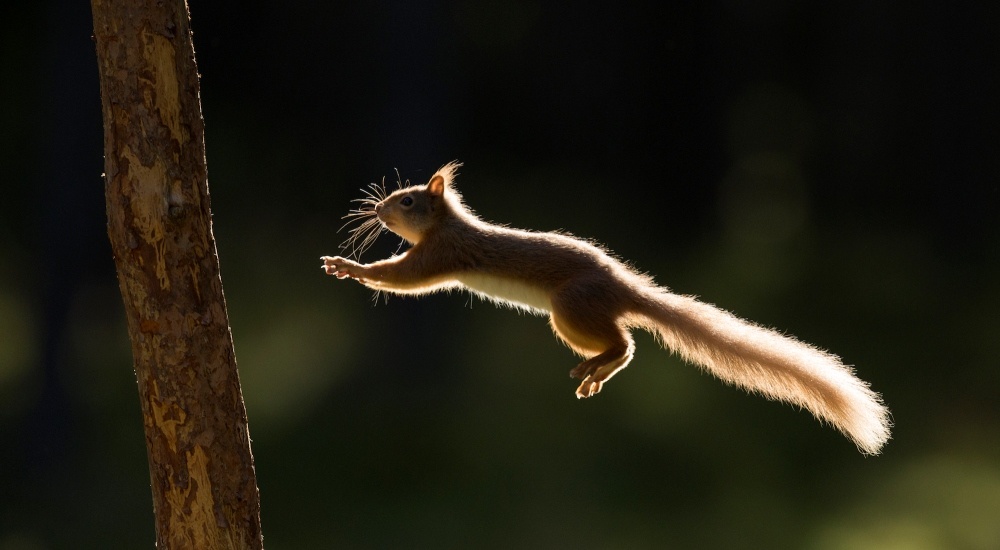An inspiring new film, titled Choices, was released on July 22, 2021. it asks Scotland‘s government—and the public—to choose rewilding as the nation’s path forward, making it the world’s first “Rewilding Nation.”
An alliance of nature charities in Scotland has ramped-up this call on the Scottish government and people at a critical moment in the country’s political and environmental history.
Despite Scotland’s reputation as a place of natural beauty, from the dramatic peaks of the Isle of Skye’s Trotternish Ridge to the vast sweep of Glencoe, the Scottish Rewilding Alliance says the science tells a very different story. Scotland is one of the most nature-depleted places in the world.
As part of its campaign to make Scotland the world’s first Rewilding Nation—a move backed by more than a dozen MSPs—the Alliance hosted an event on July 22, 2021 to launch its new film Choices.
The film presents its Scottish audience with a number of “choices” about their relationship with nature.
Steve Micklewright, Convenor of the Scottish Rewilding Alliance and Chief Executive of Trees for Life said, “As Scotland readies itself for the United Nations Climate Change Conference COP26 in Glasgow later this year, the Scottish Government needs to demonstrate global leadership by prioritising rewilding.”
“If the SNP makes a deal with the Scottish Greens to create a majority in Holyrood, we’re asking that it includes a promise to rewild at least 30% of Scotland’s land and sea by 2030. This can be achieved by restoring and expanding woodlands, moorlands, peatlands, rivers and marine habitats, and without loss of productive agricultural land,” he added. “A community fund to make rewilding accessible from towns and cities, creating pollinator corridors and urban wildflower meadows could improve the population’s mental health and wellbeing, while reducing pollution and making urban areas more enjoyable places to live.”
These include do we choose to expand our natural pine forests into huge areas of trees, shrubs and wildflowers – a place full of bird song and wild animal tracks? To have flower rich meadows in our towns and cities and create places where our children can develop, explore and play? To ensure oceans teeming with fish, whales and dolphins – full of food and supporting coastal communities who rely on nature for their living?
The Alliance says people can help achieve these aspirations by supporting rewilding, which is the large-scale restoration of nature.
They include Lynn Cassells from Lynbreck Croft in the Cairngorms, Sophie Ramsay from Bamff Ecotourism estate in Perthshire, Will Goudy from the Seawilding project at Loch Craignish in Argyll, and Kevin Cumming from the Langholm Initiative in Dumfries and Galloway.
Mark Ruskell MSP from the Scottish Greens delivered the event’s keynote speech. On June 15, Ruskell (Mid-Scotland and Fife) submitted a motion to the Scottish Parliament to make Scotland the world’s first Rewilding Nation. The motion was backed by polling in which 76% of Scots expressing an opinion supported rewilding, with just 7% opposed.
Peter Cairns, Director of SCOTLAND: The Big Picture and host of the live launch event, said “As a nation we’re only just beginning to experience a baseline shift in our perception of Scotland’s environment. While open hillside is still deemed by many to be beautiful, there’s an increasing awareness that our celebrated landscapes are dramatically lacking in biodiversity, native woodland and wildlife.”
“We’re far past the point of inaction – that’s no longer a choice we can afford to make. Despite many superb conservation initiatives, Scotland is lagging behind other countries, with its nature in steep decline,” he continued.
Declining or at risk species include red squirrels, wild cats, capercaillie and great yellow bumblebees. Recovery or return of species such as beavers, cranes, sea eagles and pine martens happen slowly, while elk and lynx are among the species already made extinct.
The Scottish Government has put 37% of Scotland’s seas into forms of designation, but damaging activities such as scallop dredging and bottom trawling are only banned from less than 5% of coastal waters. Government assessments reveal that the extent of seabed habitats continues to decline. Wild salmon populations are at historically low levels. Seabirds are feeding their chicks plastic waste.
The Alliance recommends using rewilding as a natural solution for increasing absorption of atmospheric carbon, building rewilding into post-Covid green recovery plans, and establishing a native species recovery policy and a nationwide network connecting nature recovery projects.
Photo of red squirrel courtesy of SCOTLAND: The Big Picture.

